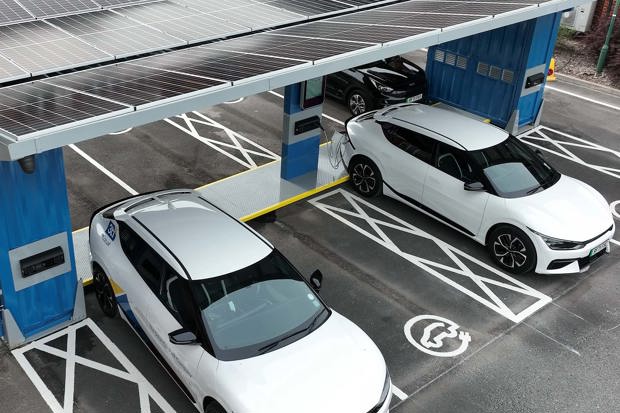Government plans to install solar panels on car parks

The Department for Energy Security and Net Zero wants to see supermarkets, retail parks and offices install solar panels on their car parks – which could potentially benefit motorists with more charging points.
Part of the government’s Plan for Change, the solar canopies would also help save "tens of thousands" on energy bills, some of which could also be passed on to motorists in cheaper charging costs.
The government has now launched a call for evidence to investigate the potential of solar in car parks across England, Wales and Northern Ireland.
Energy secretary Ed Miliband said that "right now, the sun is shining on hundreds of thousands of car parking spaces across the country, which could be used to power our homes and businesses.
"We want to work with businesses and car park operators to turn our car parks into solar carports to save families and businesses money with cheap, homegrown British energy."
Future of roads minister Lilian Greenwood said the government is committed to ensuring electric car drivers are always close to a charger.
Solar carports are already mandatory in some European countries, including France and Slovenia.
Industry experts estimate an 80-space car park could save around £28,000 per year in electricity bills by installing solar carports. The call for evidence is seeking additional evidence on other potential benefits of the policy.
Bentley Motors’s huge factory in Crewe is one of the government’s case studies. It actually boasts the largest solar carport in the UK, with 10,000 solar panels and a capacity of 2.7 MW. It enables all of Bentley’s manufacturing operations to be powered by solar.
The government’s Clean Power Action Plan has set an ambition of 45 to 47 GW of clean power by 2030.
Ground-mounted solar, it adds, currently occupies around less than 0.1% of total land area in the UK.

